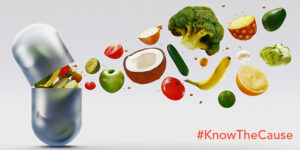

| Planting a garden poses a number of risks: drought, extreme temperatures and pests. In order to deal with pestilence, modern farmers have a number of tools at their disposal; most of them come in the form of chemical pesticides, designed to kill the bugs that might threaten crops. |
|
Pesticides have their place in our modern world; without them, food prices would soar, consistent, plentiful harvests wouldn’t be guaranteed and our food supply would often be contaminated with unwanted critters. This is the price we pay for having an efficient and global food system. However, the usage of these chemicals does concern us when it comes to talking about health. This concern over the usage of chemical pesticides has helped to drive the organic movement. Many people are going to local farms or joining CSA programs. They are eating local, getting more connected to where their food comes from. They are getting to know their farmers. And, in many cases, they are becoming the farmers, themselves. Now, perhaps more than ever in the last 50 years, people are planting their own gardens, and with good reason. What better way is there to get fresh produce on your table than going right outside and picking it? No nutritional value is lost in transport. Foods are harvested at their peak. So you’ve decided you want to plant a garden to take advantage of the benefits of fresh produce. How do you control pests without dousing your garden in pesticides. There are a few things to keep in mind. Grow plants that are indigenous to your area. Remember that not all bugs are bad. Engage in Chemical-Free Pest Control Engage in biological warfare. {flike} |
Doug Kaufmann has written many books that cover a full range or health issues. Find out which of his books best suits you by clicking the button below.
Doug Kaufmann developed his diet after years studying the clinical effects of pathogenic fungi on the body. Fungi and yeasts can become parasitic organisms on and inside our body, causing health problems that can be difficult to diagnose. Learn more about the Kaufmann Diet, change your life and know the cause.
We encourage all visitors to this site to take some time and study these technical articles prior to initiating lifestyle changes, including dietary changes and to do so with their physician’s awareness and approval. The articles posted in this link are scientific and with few exceptions are taken from medical journals familiar to healthcare workers.
Looking for help assembling antifungal Kaufmann Diet approved recipes for breakfast, lunch or dinner? We have several videos, books and recipe write ups here on Know the Cause that will help your health journey. The recipes in this section are so good, you’ll feel like you’re indulging. No sacrifice needed! Enjoy.
© 2024 Mediatriton Inc. All Rights Reserved • Website by Skynet Solutions